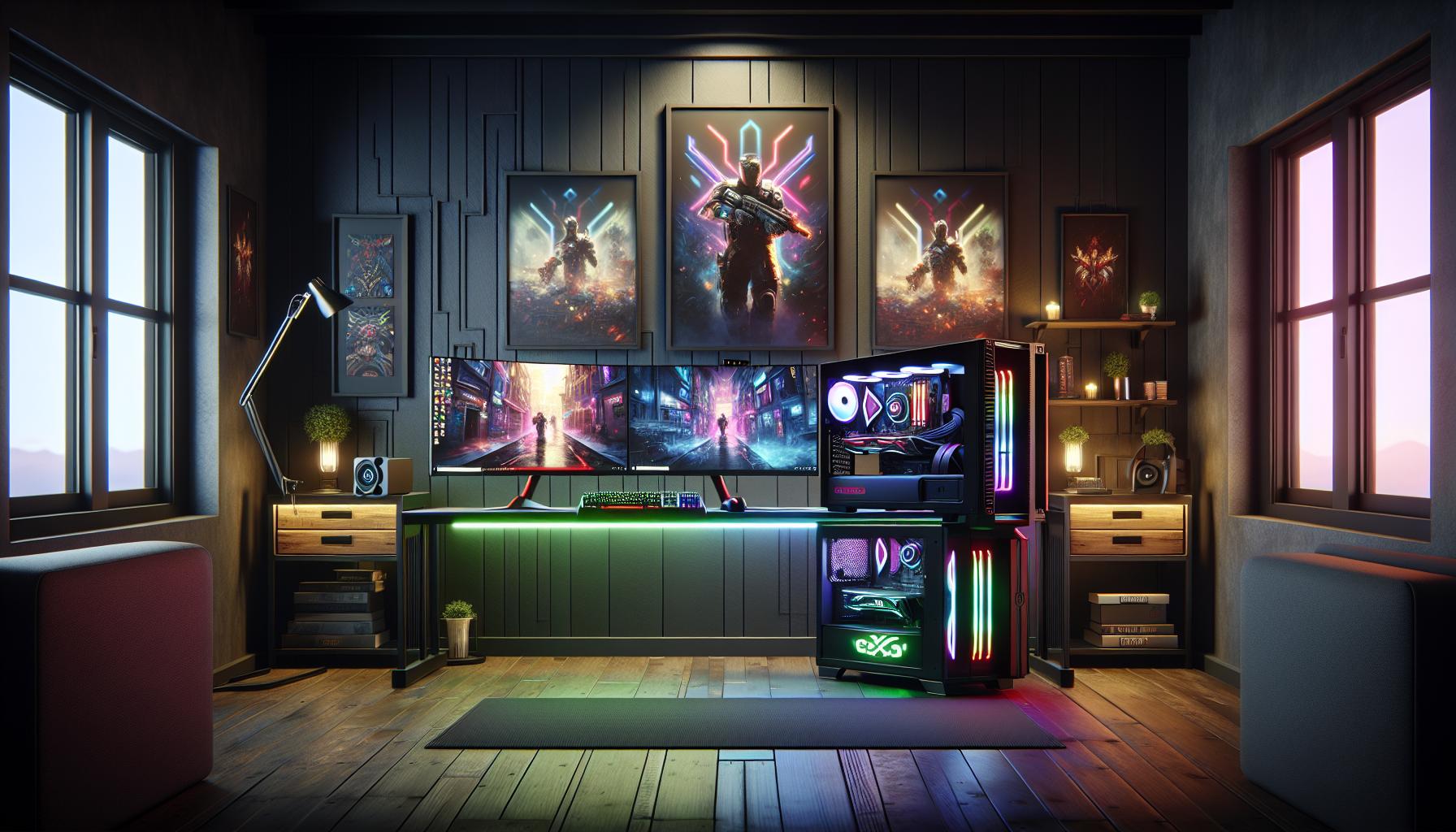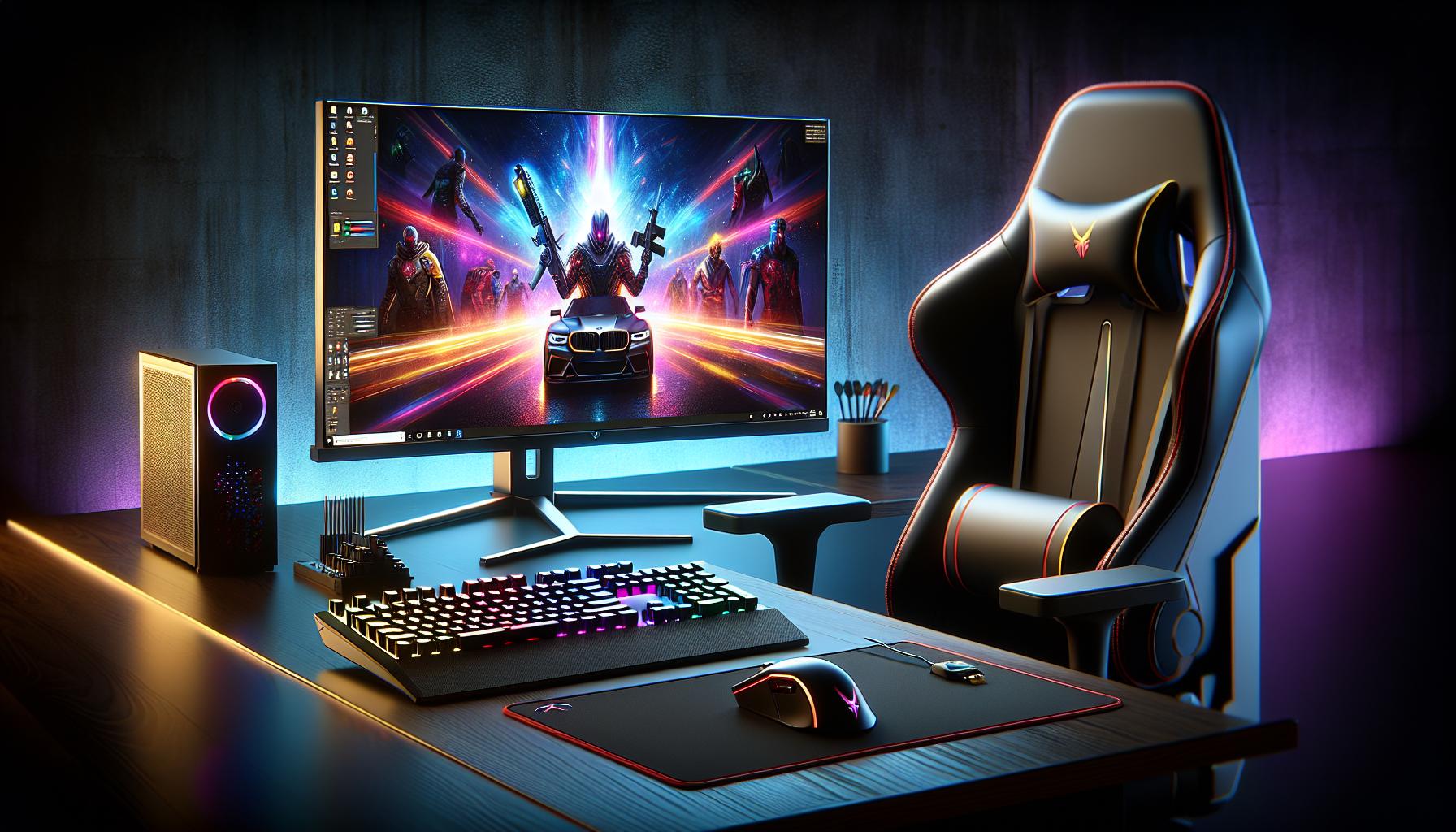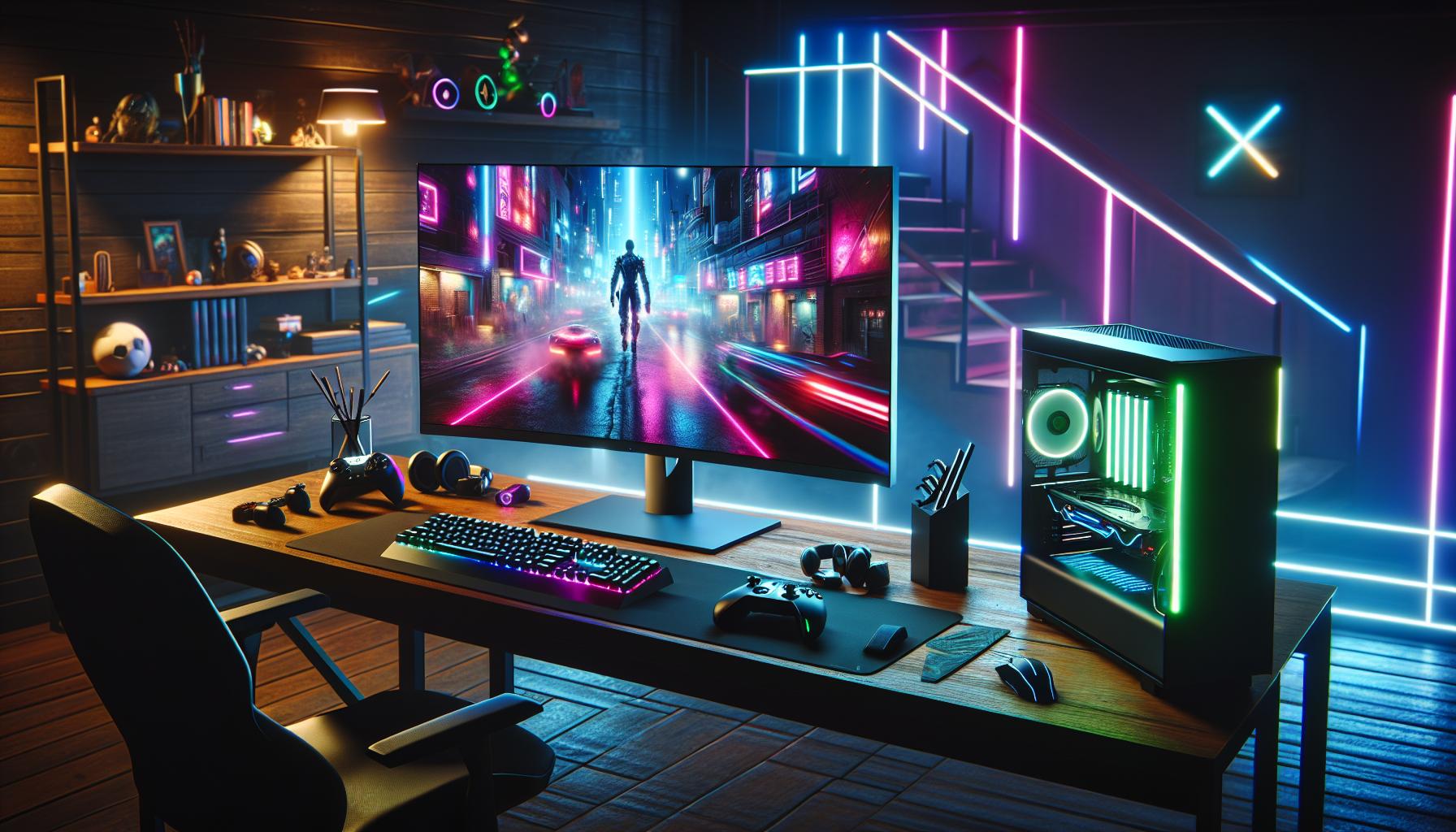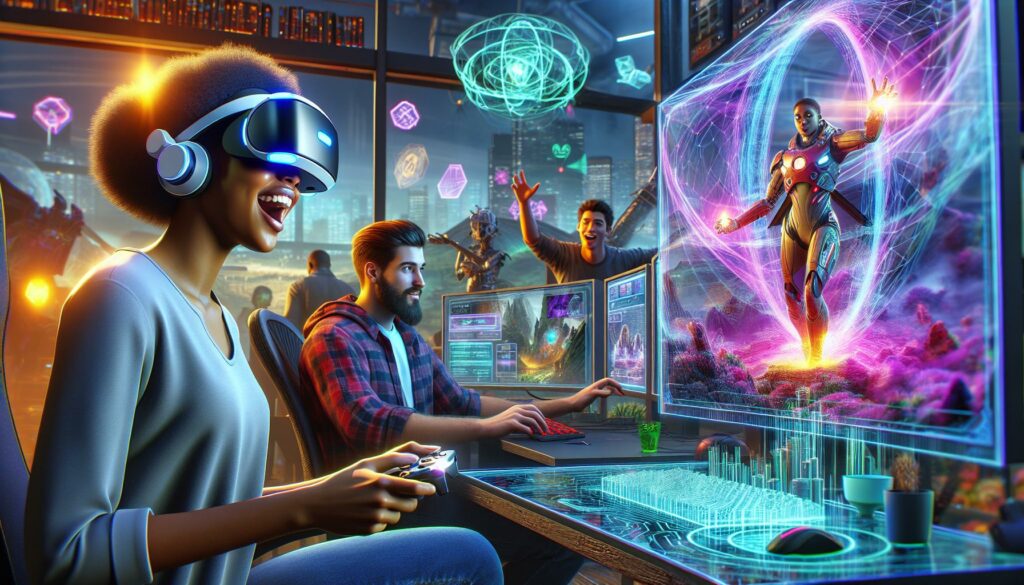In a world where gaming isn’t just a pastime but a lifestyle, gaming tech companies are the wizards behind the curtain, conjuring up the magic that keeps players glued to their screens. From cutting-edge hardware to immersive software, these companies are redefining what it means to play. If you think gaming is all about slaying dragons and collecting coins, think again—it’s also about the tech that makes those adventures possible.
Imagine a realm where graphics are so stunning they make real life look like a low-budget film. That’s the world these innovators are creating. They’re not just building products; they’re crafting experiences that whisk players away to fantastical worlds. So buckle up as we dive into the realm of gaming tech companies, where the only limit is your imagination (and maybe your budget).
Gaming Tech Companies
Gaming tech companies actively influence the evolution of interactive entertainment. They develop innovative hardware, such as graphics cards and consoles, alongside immersive software, including virtual reality and augmented reality platforms. Prominent firms like NVIDIA, AMD, and Intel lead the market in producing high-performance components essential for gaming.
Software companies also play a vital role. Epic Games and Unity Technologies stand out with their powerful game engines that enable developers to create stunning visuals and realistic simulations. Streaming platforms, including Twitch and YouTube Gaming, provide spaces for gamers to connect, share, and showcase their skills.
Additionally, mobile gaming saw tremendous growth driven by tech firms such as Nintendo and Tencent. They produced engaging mobile titles that attract millions of players worldwide. The integration of cutting-edge technology enhances accessibility, allowing a broader audience to experience gaming.
Cloud gaming services, including Google Stadia and Xbox Cloud Gaming, redefine how people access and play games. These platforms eliminate the need for high-end hardware, enabling players to stream games directly to their devices.
Investment in AI and machine learning shapes the future of gaming experiences. AI improves in-game behaviors, creating sophisticated NPCs and personalized experiences. Machine learning algorithms analyze player preferences to recommend titles tailored to individual tastes.
Ultimately, gaming tech companies continuously push boundaries, transforming how people engage with games. By harnessing technology, they foster an environment where creativity flourishes, and immersive experiences await every gamer.
Major Players in the Industry

Several major players shape the gaming technology landscape. They drive innovation and enhance gaming experiences through cutting-edge products and services.
Company Profiles
NVIDIA stands out for its graphical processing units, widely used in high-end gaming systems. AMD excels in providing competitive CPUs and GPUs, offering gamers an affordable yet powerful option. Intel remains a key player, known for its reliable processors that power countless gaming laptops and desktops. Epic Games leads in game development with its Unreal Engine, utilized by many for its stunning visuals. Unity Technologies is synonymous with versatile game development, catering to both mobile and console gaming environments. Companies like Nintendo focus on innovative hardware, appealing to a broad audience, while Tencent dominates in mobile gaming through its extensive portfolio of apps and games.
Market Influence
The influence these companies exert on the market is substantial. NVIDIA and AMD consistently push technological boundaries by advancing graphics capabilities, which directly impact game quality. Unity and Epic Games shape game development trends, affecting how developers approach project creation. Streaming platforms like Twitch and YouTube Gaming significantly affect gaming culture and community engagement, enabling content creators to reach wider audiences. Mobile gaming growth reflects a shift in consumer preferences, with companies like Tencent and Nintendo leading the charge. These evolving dynamics reshape the gaming landscape, making it increasingly competitive and rewarding for both players and developers alike.
Innovations in Gaming Technology

Gaming technology continuously evolves, driven by significant advancements in both hardware and software. These innovations transform user experiences and facilitate immersive gameplay.
Hardware Advancements
NVIDIA consistently leads the GPU market, providing cutting-edge graphics technology. AMD also excels, offering competitive CPUs and GPUs that enhance performance. Intel delivers reliable processors, ensuring smooth gameplay across various systems. VR headsets from companies like Oculus provide immersive experiences, letting players step into fantasy worlds. High-refresh-rate monitors have become standard, delivering crisp visuals and responsiveness. Solid-state drives (SSDs) are increasingly common, minimizing load times and boosting game performance. Companies focus on thermal management, creating cooling solutions that prevent overheating during intense gaming sessions. Together, these hardware enhancements create a more engaging and seamless gaming landscape.
Software Developments
Epic Games revolutionizes game development with its Unreal Engine, known for stunning graphics and flexibility. Unity Technologies offers a versatile engine, enabling developers to create both 2D and 3D experiences. Cloud gaming platforms like Google Stadia and NVIDIA GeForce Now allow players to stream games directly, reducing the need for high-end hardware. AI and machine learning technologies drive personalized gaming experiences by analyzing player behavior for tailored content. Game developers now utilize robust analytics to track player engagement, ensuring games remain engaging and relevant. Innovations in cross-platform play have expanded player communities, connecting gamers across various devices. These software advancements significantly contribute to the dynamic nature of the gaming industry.
The Future of Gaming Tech Companies

Advancements in gaming technology shape the industry’s landscape. Emerging trends and challenges will define the future for gaming tech companies.
Trends to Watch
Increased adoption of cloud gaming services gains traction. Major players invest in AI to create tailored player experiences. Cross-platform play becomes essential, expanding user engagement across devices. Immersive technologies like virtual and augmented reality transform gameplay dynamics. Edge computing enhances performance by reducing latency in gaming interactions. Continued focus on sustainability encourages energy-efficient hardware solutions. Subscription-based models for gaming content grow, as players seek value in their purchases. These trends signal a dynamic shift in how gaming tech companies approach innovation.
Potential Challenges
Intense competition within the gaming industry creates constant pressure for differentiation. Supply chain disruptions threaten timely hardware production and availability. Rising development costs challenge smaller gaming studios looking to innovate. Player privacy concerns necessitate stringent data protection measures. Keeping pace with rapidly evolving technology landscape proves difficult for established companies. Balancing user demands with profitability remains an ongoing struggle. Adapting to changing regulatory environments poses additional hurdles for gaming tech companies. These challenges require strategic responses to ensure growth and sustainability in the gaming sector.
Tech Firms
Gaming tech companies are at the forefront of a revolution that’s reshaping the landscape of interactive entertainment. Their relentless pursuit of innovation drives advancements in hardware and software that elevate the gaming experience to new heights. As the industry evolves players can expect even more immersive worlds and engaging gameplay.
The future holds exciting possibilities with emerging technologies like cloud gaming and AI integration. These advancements promise to enhance personalization and accessibility while addressing challenges like competition and sustainability. With major players continuously pushing boundaries the gaming community stands to benefit immensely from these developments. The journey ahead is sure to be thrilling as gaming tech companies redefine what it means to play.



